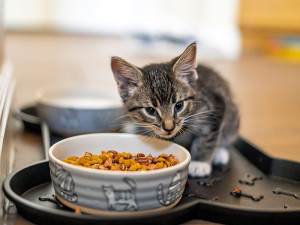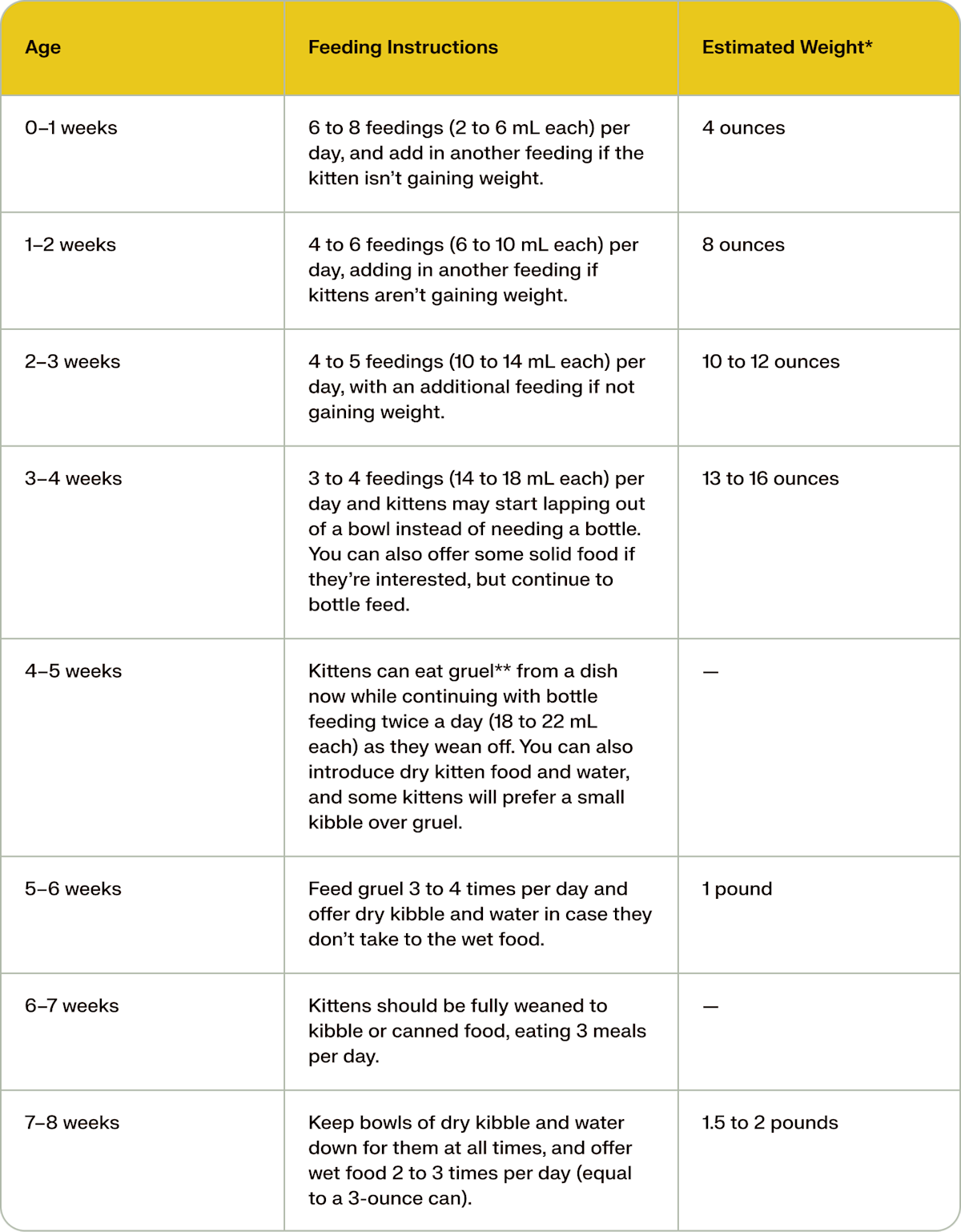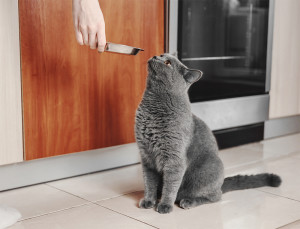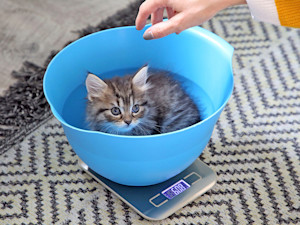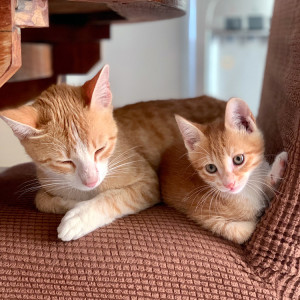Can You Give a Kitten Milk?
It depends on what kind.
In This Article:
Can Kittens Drink Milk? Is Milk Actually Healthy for Cats? How to Feed Kittens Milk What to Know About Kitten Milk Formula What Can Cats Drink Instead of Milk?
If you’re thinking about giving your kitten a bowl of milk from your fridge, think again: Cow’s milk is actually not healthy for cats or kittens. In kittens especially, it can cause diarrhea, which is dangerous for their growing bodies.
If you stumble upon a kitten in need of bottle-feeding, there are some important nutritional facts you should know before getting started. We talked to the experts about giving a kitten milk, what kind of nutritional needs kittens have, and how to properly bottle feed your kitten with milk formula.
Can kittens drink milk?
While some kittens can drink regular milk, it’s a matter of whether they should, which is a firm no. Cow’s milk doesn’t have the right nutritional value for them and can lead to diarrhea, which can further dehydrate your kitten.
How much do you spend on your pet per year?
According to veterinarian Dr. Emma Fulton, senior vet contributor to WhiskerWittyopens in new tab, kittens really need their mother’s milk in the early weeks. “If their mother isn’t around, the only suitable alternative is a kitten milk replacer (KMR),” she says. “A lot of cats, especially as they grow older, are lactose intolerant, so cow’s milk just doesn’t agree with them.”
What about almond or soy milk?
Milk alternatives also aren’t safe or healthy for kittens and should be avoided. “I’ve had people try things like almond milk or soy milk, but those don’t work well for kittens,” Dr. Fulton says. Kittens can’t digest them properly, and they can lead to upset stomachs.
Is milk actually healthy for cats?
For adult cats, milk doesn’t offer any real nutritional benefit if they’re on a balanced diet. “I’ve seen some specialized cat milk on the market, and while they might be fun as a treat, they aren’t essential,” Dr. Fulton explains. She also says that goat’s milk can be a bit easier to digest for some cats, but again, it should be given more of an occasional treat rather than a necessity.
Understanding kitten’s nutritional needs
A growing kitten will have different nutritional needs than a fully grown adult cat. This is why it’s important to feed a kitten-specific diet, whether it’s bottle-feeding with KMR or feeding canned or dry kitten food.
KMR is formulated to give kittens the nutritional content they’d normally get from their mother’s milk, providing the right balance of protein, fat, and carbohydrates. Once weaned off milk and onto wet kitten food or kibble, kittens still need more vitamins and minerals to help them grow and develop properly, which can only be found in kitten-specific food.
How to feed kittens milk
Here are the proper instructions for feeding kittens up to eight weeks old, assuming they need to be bottle-fed. These feedings must be with kitten milk replacement, not cow’s milk, almond milk, or any other variety. Note that healthy kittens should gain about four ounces every week.
**Gruel is a mixture of canned kitten food and warm water (or KMR) with the consistency of applesauce.
What to know about kitten milk formula
“When feeding kittens, it’s really important to use formula designed for them, like KMR, and make sure it’s warmed to body temperature,” Dr. Fulton explains. Feeding too fast or too much can cause digestive issues, and it’s important never to wake a kitten to force them to eat. She adds: “I’ve worked with orphaned kittens before, and this process takes a little time and patience to get right.”
Milk supplements for kittens
What can cats drink instead of milk?
For adult cats, the best drink is always fresh water. Dr. Fulton notes that if owners want to add a little variety, a small amount of cat-safe broth can be a yummy, occasional treat. She warns owners to avoid ingredients like onion or garlic, however, which can be harmful.


